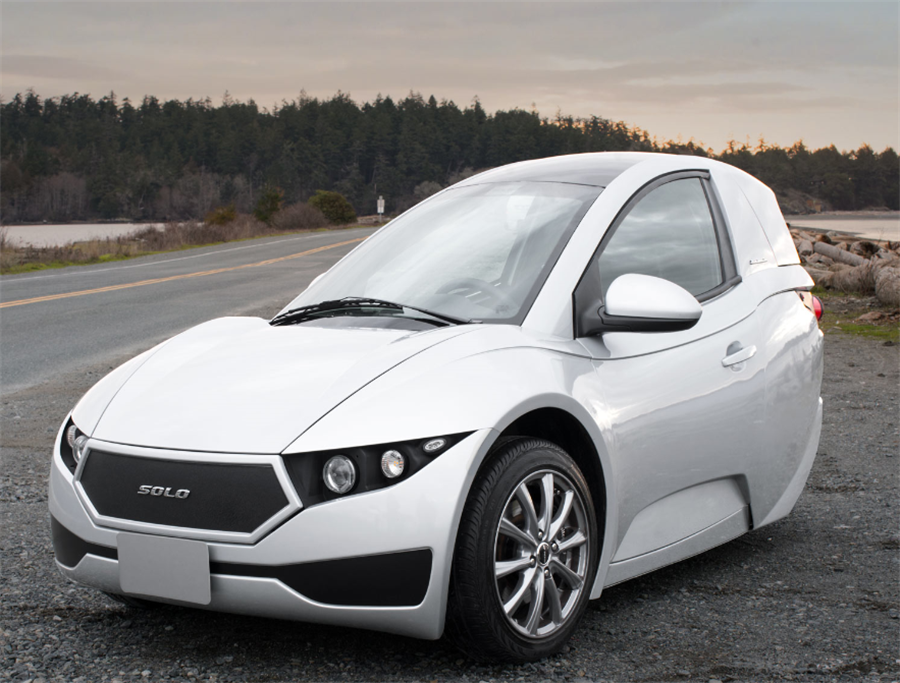
The government energy department of the world’s second most-populated country has vowed to do away with new gasoline- or diesel-powered vehicles over the next 13 years.
Last year’s promise was followed by a similar commitment by China, which is developing its own plan to phase out vehicles known for spouting emissions.
While China hasn’t hammered down a formal phase-out date, one Vancouver-based electric-vehicle maker is already capitalizing on the global market potential.
“We want to see the world transition from fossil fuel to clean tech,” says Jerry Kroll, CEO of Electra Meccanica Vehicles Corp.
Pre-production models of the pod-like electric vehicles can already be spotted zipping through Vancouver’s streets and highways.
).
Last month Electra Meccanica (NASDAQ: SOLO) received its first production vehicle from a Chinese assembly plant run by Zongshen Industrial Group Co., Ltd.
The signature three-wheeled, single-passenger vehicle known as the Solo looks like it could have been plucked from the set of a sci-fi movie filmed in Vancouver.
Kroll said market conditions in jurisdictions like California, Europe, India and China, which are under pressure to reduce emissions, are ramping up growth plans for the 59-year-old car company that moved into the electric vehicle game five years ago.
A May report from the International Energy Agency estimates 125 million electric vehicles will be on the road by 2030.
Global ownership stands at 3.1 million vehicles as of 2017 following a 54% growth spurt last year, according to the report.
“The hurdles for a new carmaker to ford are enormous, and Electra Meccanica is no exception,” said Matthew Klippenstein, principal at Electron Communications, who tracks the Canadian electric vehicle sector.
Klippenstein said it will take pressure from regulators for the car industry to successfully transition from combustion engines to electric-powered engines due to the sizable gulf in costs between the vehicles.
“Whether the regulation is soft like a Pigouvian carbon tax … or hard like a ban, we’ll need something,” he said, referring to a type of tax, such as a levy on sugary drinks or tobacco, intended to compensate for negative outcomes of a product or service.
After going public on the OTC Markets last year, Electra Meccanica transitioned to the high-profile Nasdaq exchange earlier this month in a bid to raise US$10 million. Its new stock symbol, SOLO, is a reference to the brand’s signature vehicle.
Meanwhile, the company announced a manufacturing deal with Zongshen in October 2017 to deliver 75,000 units by 2020.
Sales of those units would generate revenue of about $1.5 billion, while the company has pre-orders totalling $2.4 billion between the Solo and its two-seater electric vehicle, the Tofino, Kroll said.
The CEO said his strategy is to eschew Tesla, Inc.’s model of building its own factories and manufacturing its own vehicles.
Instead, Electra Meccanica has adopted the Apple Inc. model of designing its products and then contracting experienced manufacturers to produce them.
“That’s the platform we’re using. Quick to market, top-tier partners,” he said.
(By Tyler Orton)